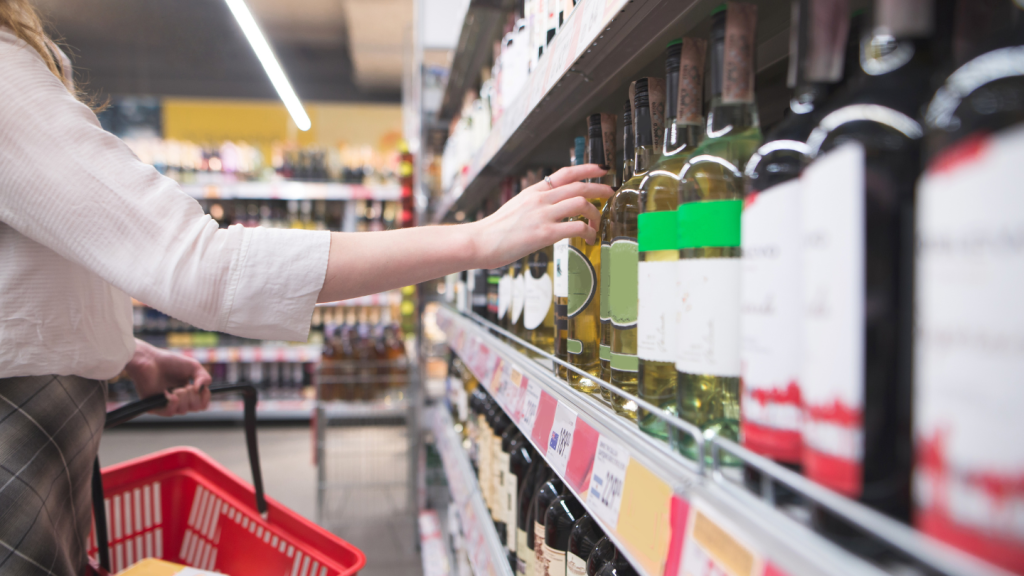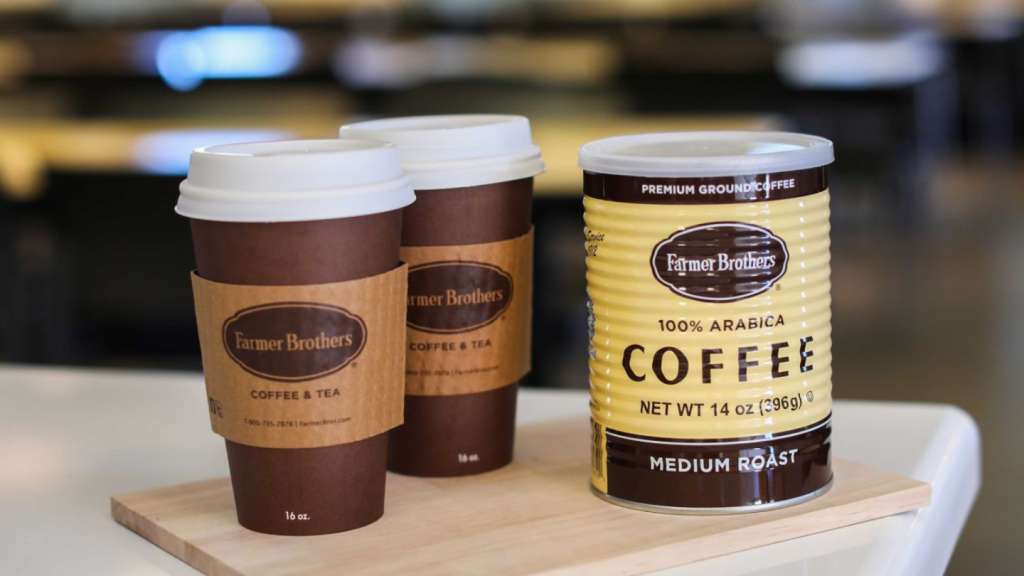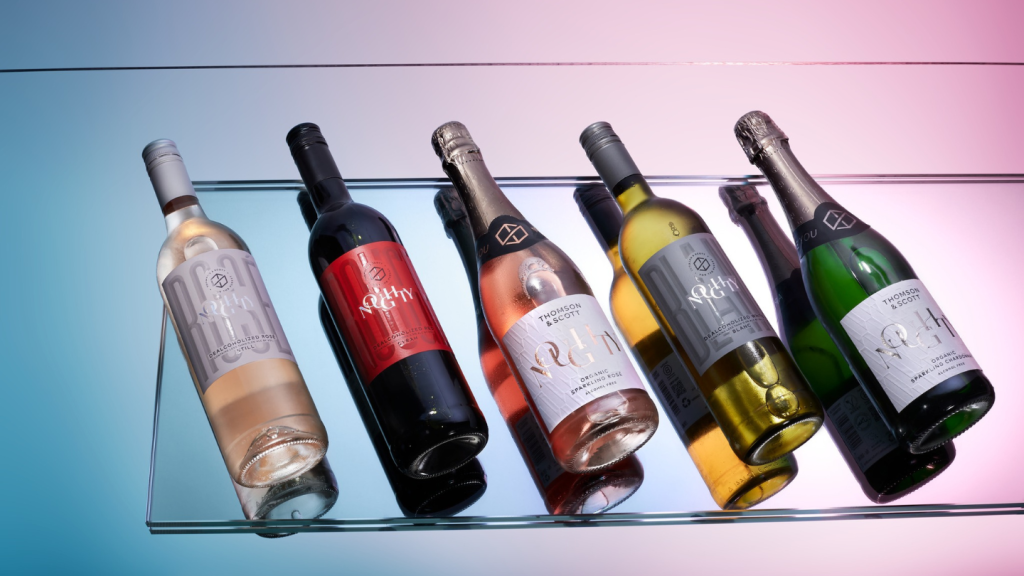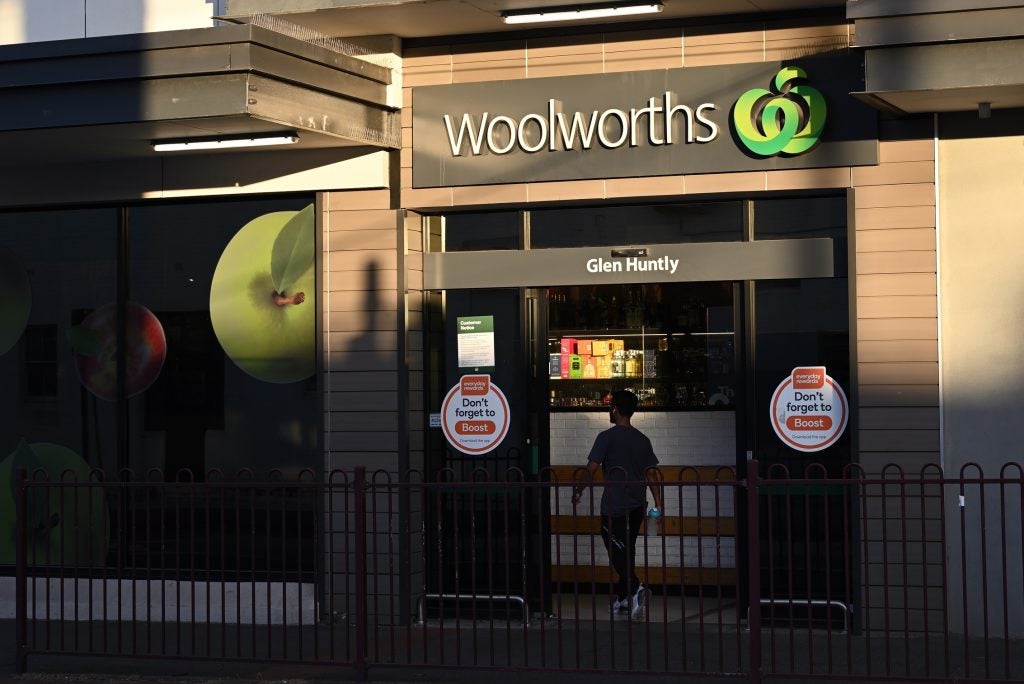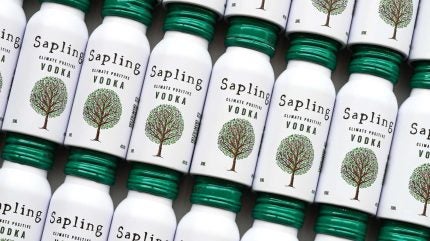
“Today marks another significant moment and an industry first,” wrote Shiada Drysdale, beverages manager at Virgin Atlantic in March. “For the past couple of years [we] have been ‘pestering’ brands to create a suitable alternative format to the plastic and glass miniature. Both have served their purpose but it’s time to shake things up a bit.”
Enter the “low carbon aluminium 5cl bottle”, she announced, in partnership with UK-based Sapling Spirits. This change can reduce carbon emissions and the bottles are lighter than glass. They may also appease consumer concerns over the other lightweight alternative: plastic.
PET has been the go-to plastic polymer for these bottles given how light and recyclable it is. However, more than three-quarters of passengers surveyed by the International Air Transport Association (IATA) in November 2023 would ‘feel better about flying’ if there were fewer single-use plastic products.
Changing the materials used for drinks miniatures on flights is a (very) small step in the rather bigger issue of tackling aviation’s climate footprint. The brands involved in the early adoption of ‘more sustainable’ packaging options are cognisant of how this looks from the outside. But there is little doubt that the aluminium switch is taking off.
Sapling Spirits’ climate-positive vodka on Virgin Atlantic flights is not the only aluminium miniature launched this year. Travel packaging specialist Sustainaholics has just partnered with easyJet to offer UK brands including Two Drifters (rum), Penrhos Spirits (gins), Ellers Farm Distillery (spirits) and Wildjac (spirits) in its 5cl Alumini bottles made from 100% post-consumer recycled (PCR) aluminium.
Harriet Williams, sales director at Penrhos says they had a completely open mind about what containers they might use. First, they looked at the paper bottles that were starting to appear. “We couldn’t reconcile the plastic bag element and whether it would be easily recycled,” she explains. They then struggled with a stainless steel concept “which in hindsight was never going to work, either on the environmental or cost side”. Then: a stroke of good fortune. “Our co-founder [Charles Turner] came across a lady carrying an aluminium water bottle, which gave us our eureka moment.”
How well do you really know your competitors?
Access the most comprehensive Company Profiles on the market, powered by GlobalData. Save hours of research. Gain competitive edge.

Thank you!
Your download email will arrive shortly
Not ready to buy yet? Download a free sample
We are confident about the unique quality of our Company Profiles. However, we want you to make the most beneficial decision for your business, so we offer a free sample that you can download by submitting the below form
By GlobalDataThere are similar moves being made on the ground too. Diageo has just announced its Baileys original Irish cream liqueur will be available in 70cl aluminium bottles at international airports including Amsterdam Schiphol, Frankfurt and Copenhagen. The new bottles will be “five times lighter” than the traditional bottles, meaning a “more convenient bottle to travel with for shoppers, but more importantly […] an expected 44% carbon reduction”.

Mariella Menato, strategy director and head of sustainability at drinks branding agency Denomination in Sydney, Australia, says moving drinks out of glass represents a “big change” for consumers, so providing them with alternatives that “still feel reassuring, credible and recognisable is vital in giving them the confidence and trust to move beyond a format they’ve been shopping for years. Unlike paper or plastic, aluminium has been used in alcoholic drinks in the form of cans for decades so there is an underlying acceptance already there”.
Wines are already moving from glass bottles into cans (as well as recycled PET) to cut carbon emissions (traditional bottles are a major source of the industry’s climate impact). The switch is not simple, however. The 2023 buying green report published by metal packaging producer Trivium Packaging showed 79% of the 9,000 consumers surveyed are looking for products in sustainable packaging. “But while the impact of plastic pollution is clear for people to see, the perception of glass versus aluminium is much more nuanced,” says director of strategy and business development Chas Aylsworth.
Researchers from the University of Adelaide, Australia, and the University of South Australia also noted in a paper for the Journal of Cleaner Production recently that “these alternative formats pose challenges with consumer acceptance and knowledge of the eco-benefits of each format”. Work they are doing currently, with academics from Sonoma State University, in the US, and the University of Florence, Italy, considers American, Australian and Italian consumer perceptions of different wine containers. An initial summary of the study shows that consumers “still do not understand the effect of bottle weight on wine’s carbon footprint and environmental implications”.
“I am not aware of any scientific study that has looked into the long-term performance of aluminium bottles,” Armando Maria Corsi, associate professor at the University of Adelaide Business School, tells Just Drinks. However, he can see why there is optimism that innovations such as Element[AL]’s new bottle could be successful. “Package shape plays an important role in the choice of any product, including wine,” he adds.
Get in shape
The Element[AL] bottle mimics the shape of the traditional wine bottle. “We’ve been developing [this] for over three years,” explained Paul Englert, VP of marketing at Bogle Family Wine Collection, when the new format was launched in January. “We were committed to finding a way to dramatically reduce the carbon footprint of traditional wine bottles in a manner that still connected with consumers.”
The carbon savings from using aluminium are potentially impressive. Diageo’s packaging for example contributes one-third to its total scope 3 greenhouse gas emissions, so a bottle that is 44% lower in carbon could be game-changing (when comparing only single-use formats). The Baileys bottle weighs 85g compared to the 454g of the current 70cl glass one.
At Penrhos Spirits, the switch to 100% recycled aluminium has improved their bottles’ carbon footprint by 91%. “Yes it’s more expensive,” says Williams, “but by how much exactly we don’t know – we haven’t discussed this with our suppliers as we only ever wanted to go down the 100% recycled route.”
And herein lies a “crucial” element of this switch, according to Sustainaholics founder David Mills. “Aluminium bottles are a more sustainable choice when made from 100% recycled aluminium,” he explains. “My five-year-old will tell you that extracting raw materials from the earth is a dumb idea.”
But he feels there is some clever marketing going on by some in this space. “Aluminium is not the most sustainable option just because it’s light and recyclable, but because it’s also 100% recycled,” he continues. “If companies supply bottles made from virgin aluminium and claim environmental benefits, the risk of greenwashing accusations is as high as the CO2 emissions created during production.”
So, is there a darker side to aluminium’s shiny exterior? Are some first movers playing on the material’s ‘infinitely recyclable’ kudos but not using any recycled content in their bottles?
Paula Chin, senior policy advisor for consumption at WWF, is someone who has also been trying to shine a light on some of this. She recently produced research detailing the environmental impacts of global material flows relating to the UK’s packaging consumption. It is a murky world to say the least, and aluminium is “the most complex” chain, she explains.
Chin found significant environmental hot spots around the extraction of the raw material and its processing and manufacture. Collection and sorting for recycling is ok, as it goes, with well-established systems in place. Remelting of aluminium is also common and has been integrated into the aluminium supply chain. There is work going on in the background, using blockchain and AI, to improve transparency, says Chin.
But start asking the aluminium packaging sector for specifics on the recycled content found in drinks containers and the answer is often vague. The response tends to be that the rates are high and the system is well-established, so there is little need for specific data on the recycled content being used in certain containers or by specific brands.
And yet when it comes to using recycled content in packaging the most striking carbon savings are between virgin and recycled aluminium. Carbon Cloud data shows the footprint of virgin aluminium ingot as 5.64kgCO₂e/kg in Europe. The recycled aluminium is a fraction of that at 0.3kgCO₂e/kg, which is why the likes of Penrhos make sure they shout about their 100% recycled aluminium on all their media channels.
“It is vital to us as a business that we are transparent and we strongly believe that other brands should do the same,” says Williams. “Any brand claiming to be eco-friendly and sustainable whilst using virgin materials is guilty of greenwashing and puts the whole concept at risk.”
Metal cheats?
Chin says if she were a drinks brand she would definitely “be probing into this” and wonders at what point it will be relevant where the recycled content comes from too.
Indeed, consider those aluminium ingot footprints from Europe, which are around a third (virgin, 16.4kgCO₂e/kg) and a quarter (recycled, 1.02kgCO₂e/kg) of those for aluminium coming from China. “I think there needs to be far greater transparency around the quantity of recycled content to virgin material but I’m hopeful this will come as people become more educated and government regulations around messaging become stricter,” says Denomination’s Menato.
A Diageo spokesperson says the aluminium used in their bottle is “100% recycled” (though the bottle neck contains a 4g plastic thread and the cap is 2.5g of virgin aluminium).
Ed Faulkner, co-founder at Sapling, says he took ten months to find a “solid supply chain” for 100% recycled aluminium. Some suppliers tried to push him towards virgin material, or at least part-virgin-part-recycled aluminium. The argument was that virgin aluminium could sustain the demands of the smaller brands should the sector’s behemoths hoover up all the recycled content.
“We can’t change what we do based on what Coca-Cola might do in the future,” he says. The carbon accounting the company did (thanks to a sustainability grant) showed early on that “it had to be recycled aluminium [in the bottles]”, Faulkner adds. In a follow-up email, he sends an invoice from his supplier dated March showing the purchase of “100% PCR aluminium”.
Neither Baileys nor Sapling mentioned the 100% recycled content in their press releases, though. Faulkner says Virgin did not see it as important from a consumer perspective. Maybe it should be?
Mills at Sustainaholics, who also presents batch certificates for rigid aluminium tubes detailing the material grade being used is ‘PCR-100%’, says his customers have started asking for evidence and encourages more brands to do so. “This crucial information must be mentioned, and shown on the bottle and manufacturer’s batch certificates,” he says. “Transparency is the nemesis of greenwashing and a responsibility shared by bottle manufacturers, brands, agencies and buyers alike.”
With Carlsberg claiming a bottle with 80% rPET is a lower carbon option than even a can with 60% recycled aluminium, the drinks and travel industries surely have to be transparent about the recycled content of aluminium bottles. If not, this shift will be grounded.



